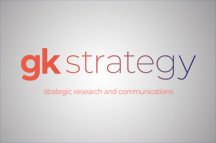2019 will present new challenges for companies in terms of ensuring they have the right ESG (environmental, social and governance) credentials to win tenders. Procurement is an ESG issue that is strongly affected by political and institutional agendas. It’s important then that companies and investors ensure that the ESG criteria they use reflect this rapidly changing environment. GK’s ESG due diligence and advisory services reflect such changes.
One of the biggest developments in 2018 was the mainstreaming of the social value concept (which includes measuring and delivering social, economic, cultural and environmental benefits to communities) beyond its original niche in the built environment.
Social value considerations are also likely to affect political and regulatory perspectives on mergers, such as ASDA and Sainsbury’s.
The main driver for this agenda shift was arguably the Government, using it as a lever to change public procurement.
Shifts in government procurement practice tend also to drive changes elsewhere, not just because they are a major customer for the private sector (and so their greater ESG procurement demands drive better ESG performance and credentials elsewhere) but also because they can lead to legislation.
In November, the Minister for the Cabinet Office, David Lidington, announced that by summer 2019, government procurement exercises will be required to take social and economic benefits into account in certain priority areas – including supporting small businesses, providing employment opportunities for disadvantaged people and reducing harm to the environment.
This builds on announcements in June measures designed to “promote a healthy and diverse marketplace of companies bidding for government contracts, including small businesses, mutuals, charities, co-operatives and social enterprises”.
Companies – and their investors – will need to consider whether they are set up to win contracts on a social value basis and whether they have the personnel and expertise to do this.
Paradoxically, higher social value requirements are likely to disadvantage SMEs, as they may lack these capabilities, compared to many of the large companies with dedicated social value teams and strategies.
Our advice to companies bidding for government contracts (or as sub-contractors to those that are) is that they ensure they have robust social value strategies, credentials and capabilities.
We emphasise that achieving competitive advantage in social value is not just about demonstrating capability in this area but understanding what it may mean to different groups. Social value can legitimately mean many different things, so it’s important to understand the perspectives of various audiences.
For officials and planning experts, it may mean maximising social value according to quantifiable measures, (e.g. impact on local employment or traffic levels); for politicians it may be more subjective and aspirational – and vote-driven.
Companies also need to recognise that the social value agenda is part of a much wider and more significant move to shift public procurement from economically unsustainable, low margin models that led in part to the collapse of Carillion and the poor prospects for many outsourcing companies.
The Government has proposed ‘living wills’ to ensure continuity of provision in the event of business failures. Other public sector tenders are likely to follow suit.
As Brexit may further affect consumer demand, companies operating in the relatively more stable business-to-government space may appear more attractive to investors. But they need to ensure that they have reviewed their capability and capacity to address the new political agendas for procurement.












